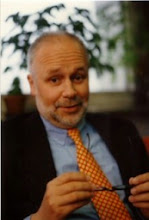Das hätte ich nicht gewusst, dass er Amerikaner ist. Aber Frederic Raphael wurde tatsächlich am 14. August 1931 in Chicago geboren. Seine Eltern zogen allerdings 1938 nach England, und so bekam er mit den Stationen Charterhouse und St John's College, Cambridge die Erziehung eines englischen Gentleman. In dieser Rolle musste er sich erst zurechtfinden, der Antisemitismus seiner Mitschüler machte ihm das Leben schwer. Er fühlte sich, als sei er fallen among savages whose rites and language were beyond easy comprehension. Und: I had no sense of belonging to a society. I was a so-called Jew parked among so-called Christians ... I claimed no friends.
Vor fünfzig Jahren kannte ihn jeder, da bekam er einen Oscar für den Film Darling, den John Schlesinger nach Raphaels Drehbuch mit ➱Julie Christie und ➱Dirk Bogarde gedreht hatte. I was very lucky – and quite clever, hat er gesagt. Es ist sicher sehr schön, wenn man sein Berufsleben gleich mit einer solchen Auszeichnung beginnt. Aber er selbst sieht das kritisch: Of course I am delighted to be handed bits of metal and stuff – why not? – but don't we all know it's farcical? And the more successful you are, the more farcical you should realise it is. Nach dem ersten Erfolg (der auch einen Oscar für Julie Christie bedeutete) kam zwei Jahre später der Erfolg von Far from the Madding Crowd, wieder mit Julie Christie und ➱John Schlesinger.
Den Raphael nicht unbedingt mochte. Er konnte wunderbar bösartig sein: Actors like to be treated as intellectuals, so long as it doesn't entail having to be intelligent. Wir sollten nicht vergessen, dass hier ein Drehbuchautor spricht, der Klassische Sprachen und Philosophie in Cambridge studiert und Catull, Aischylos, Petronius und Euripides übersetzt hat. Es hat ihn verletzt, dass Schlesinger sein Drehbuch für Far from the Madding Crowd nie gelobt hat (He has never offered one word of appreciation), und so ist sein Urteil über den Regisseur voller Schärfe: the Schlesinger method of seeming to be concerned with uncompromising truth while really caring only for the approval of his audience. He has no wish to change anything. Das findet sich in Personal Terms: The 1950s and 1960s, seinen Tagebüchern aus dieser Zeit.
Der nächste Film scheint ihm mehr Vergnügen bereitet zu haben, er hieß Two for the Road. Eine leichte Komödie mit Audrey Hepburn und Albert Finney, an den sich Modefans wegen der schönen ➱Klamotten von Paco Rabanne erinnern. Und natürlich wegen des Songs von Henry Mancini. Der ja schon Moon River für einen anderen ➱Audrey Hepburn Film geschrieben hatte. Es gab eine Oscar Nomierung in der Kategorie Bestes Drehbuch für Raphael (und die gleiche Nominierung bei der British Film Academy). Das Bild von Audrey Hepburn in dem Paco Rabanne Kleid war schon in dem Post ➱Pierre Cardin zu sehen. Außer ihr konnte niemand dieses Kleid tragen.
Zwei auf gleichem Weg erschien als Taschenbuch bei Rowohlt, wo auch schon Darling erschienen war. So erfolgreich Frederic Raphael, der neben Drehbüchern auch Romane und Essays (und eine Byron Biographie) schrieb, mit seinen Drehbüchern war, so kritisch stand er dem gegenüber: Film-writing is like solving puzzles; it's not like art. The novel is like art – a bit. All the rest is what I shouldn't be doing. The fun of journalism is the fun of promiscuity: very, very quick pleasure. Since I don't do promiscuity in the sexual sense, I suppose I do it in the literary sense. But I take absurdly too much trouble over everything I do.
Häufig funktionierte das Verhältnis zwischen Drehbuchautor und Regisseur nicht. Ich zitiere dazu einmal Peter Bogdanovich über seine Henry James Verfilmung Daisy Miller mit Cybill Shepherd (die ➱hier einen Post hat): They thought it was a kind of a vanity production to show Cybill off. If I'd wanted to do that I would have done something else. That was a pretty difficult role, and I thought she was awfully good in it. What some people didn't realize is that that was the way a girl like that would have been in 1875. She was from New York, she was a provincial girl. If you read the story that's what she is.
If you read the original novel we hardly added anything. The movie is exactly the book. I added one sequence that I wrote that Freddy Raphael had nothing to do with. In fact Freddy Raphael had nothing to do with that script, it was so funny. There's two things he wrote. One idea was the little miniature painter and the other thing was having that scene play in the baths... Everything else was the book and I couldn't use his script cause it was really way over the top. Anyway, that's another story. We went to arbitration in England cause Freddy's English and so they were a little partial to him. They said I could have billing but it would have to say "Additional Dialogue by", and I said I'm not going to give myself that.
Vielleicht hätte Bogdanovich das lieber gelassen, an dem Drehbuch von Raphael herumzudoktern, der Film wurde ein Flop. Es hat Raphael nicht so sehr bekümmert, auch wenn Bogdanovich über ihn sagte, dass Raphael a name-dropper who drops his own name sei. Bosheit gehört zum Filmgeschäft. Dass Lewis Jones im Telegraph über ihn sagte: He is, roughly speaking, a British heterosexual Gore Vidal, whose equal he is in vanity and prickliness wird ihm vielleicht sogar gefallen haben. Man kann nicht der schlechteste Schriftsteller sein, wenn man mit Gore Vidal (der ➱hier einen Post hat) verglichen wird. Frederic Raphaels ➱Autobiographie Going Up: To Cambridge and Beyond - A Writer's Memoir ist gerade erschienen. Und ich möchte mit diesem Post mal eben dem Ausnahmetalent unter den Drehbuchautoren (der auch Fellow der Royal Society of Literature ist) zum Geburtstag gratulieren.









Spannend und vergnüglich zu lesen.... Wie immer !
AntwortenLöschenMit sonnigen Grüßen, Heidrun